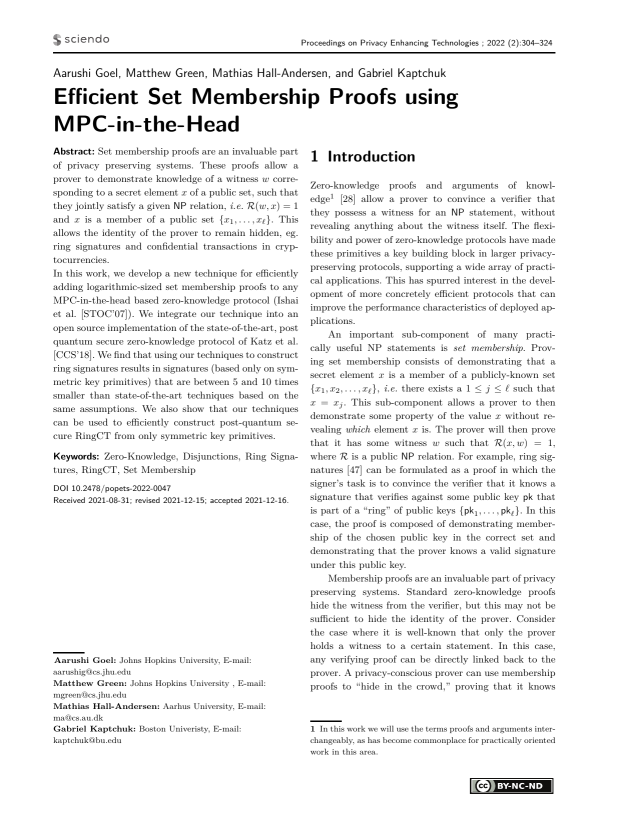Efficient Set Membership Proofs using MPC-in-the-Head
Authors: Aarushi Goel (Johns Hopkins University), Matthew Green (Johns Hopkins University), Mathias Hall-Andersen (Aarhus University), Gabriel Kaptchuk (Boston Univeristy)
Volume: 2022
Issue: 2
Pages: 304–324
DOI: https://doi.org/10.2478/popets-2022-0047
Abstract: Set membership proofs are an invaluable part of privacy preserving systems. These proofs allow a prover to demonstrate knowledge of a witness w corresponding to a secret element x of a public set, such that they jointly satisfy a given NP relation, i.e. R(w, x) = 1 and x is a member of a public set {x1 , . . . , x` }. This allows the identity of the prover to remain hidden, eg. ring signatures and confidential transactions in cryptocurrencies. In this work, we develop a new technique for efficiently adding logarithmic-sized set membership proofs to any MPC-in-the-head based zero-knowledge protocol (Ishai et al. [STOC’07]). We integrate our technique into an open source implementation of the state-of-the-art, post quantum secure zero-knowledge protocol of Katz et al. [CCS’18]. We find that using our techniques to construct ring signatures results in signatures (based only on symmetric key primitives) that are between 5 and 10 times smaller than state-of-the-art techniques based on the same assumptions. We also show that our techniques can be used to efficiently construct post-quantum secure RingCT from only symmetric key primitives.
Keywords: Zero-Knowledge, Disjunctions, Ring Signatures, RingCT, Set Membership
Copyright in PoPETs articles are held by their authors. This article is published under a Creative Commons Attribution-NonCommercial-NoDerivs 3.0 license.

